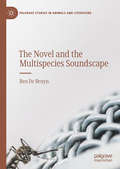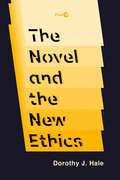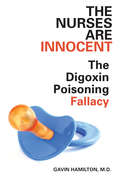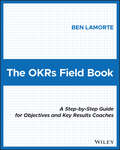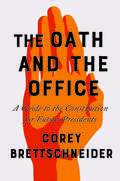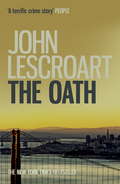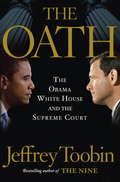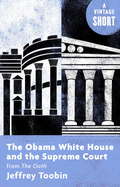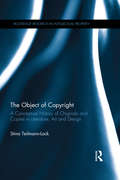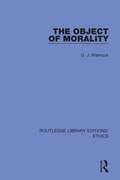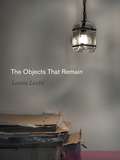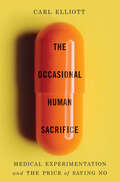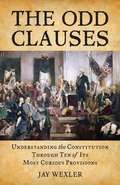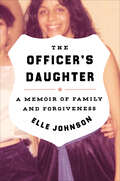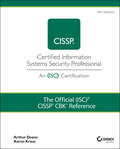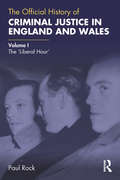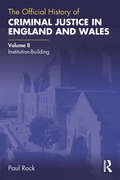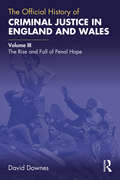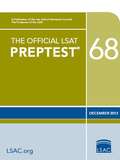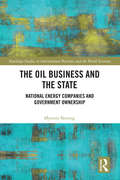- Table View
- List View
The Novel and the Multispecies Soundscape (Palgrave Studies in Animals and Literature)
by Ben De BruynThe contemporary novel is not as silent as we tend to believe, nor does it only attend to human plots and characters. As this book shows, writers in a range of subgenres have devoted considerable attention to the voices of nonhuman animals, and to the histories and technologies of listening that shape twenty-first-century cultures and environments. In doing so, their multispecies novels illuminate the cultural meanings we attach to creatures like dogs, frogs, whales, chimpanzees, and Tasmanian tigers – not to mention various bird species and even plants. At the same time, these stories explore the attitudes of distinct communities of human listeners, ranging from vets and musicians to chimp caretakers and sonar technicians. In highlighting animal sounds and their cultural meanings, these novels by authors including Amitav Ghosh, Julia Leigh, Richard Powers, Karen Joy Fowler, Cormac McCarthy, and Han Kang also enrich pressing debates about species extinction, sound pollution, nonhuman communication, and human-animal relations. As we are violently reshaping the planet, they invite us to reimagine our own humanity and animality – and to rethink how we tell stories about multispecies contact zones and their complex soundscapes.
The Novel and the New Ethics (Post*45)
by Dorothy J. HaleFor a generation of contemporary Anglo-American novelists, the question "Why write?" has been answered with a renewed will to believe in the ethical value of literature. Dissatisfied with postmodernist parody and pastiche, a broad array of novelist-critics—including J.M. Coetzee, Toni Morrison, Zadie Smith, Gish Jen, Ian McEwan, and Jonathan Franzen—champion the novel as the literary genre most qualified to illuminate individual ethical action and decision-making within complex and diverse social worlds. Key to this contemporary vision of the novel's ethical power is the task of knowing and being responsible to people different from oneself, and so thoroughly have contemporary novelists devoted themselves to the ethics of otherness, that this ethics frequently sets the terms for plot, characterization, and theme. In The Novel and the New Ethics, literary critic Dorothy J. Hale investigates how the contemporary emphasis on literature's social relevance sparks a new ethical description of the novel's social value that is in fact rooted in the modernist notion of narrative form. This "new" ethics of the contemporary moment has its origin in the "new" idea of novelistic form that Henry James inaugurated and which was consolidated through the modernist narrative experiments and was developed over the course of the twentieth century. In Hale's reading, the art of the novel becomes defined with increasing explicitness as an aesthetics of alterity made visible as a formalist ethics. In fact, it is this commitment to otherness as a narrative act which has conferred on the genre an artistic intensity and richness that extends to the novel's every word.
The Nurses Are Innocent: The Digoxin Poisoning Fallacy
by Dr Gavin HamiltonGavin Hamilton’s research shows that a toxin found in natural rubber might well have been the culprit in the 43 babies’ deaths at Toronto’s Hospital for Sick Children in 1980–81. In 1980-81, 43 babies died at Toronto’s Hospital for Sick Children from a supposed digoxin overdose. Serial murder was suspected, leading to the arrest of nurse Susan Nelles. In order to clear Nelles’s name, an investigation was launched to find an alternate explanation. No one on the Grange Royal Commission of Inquiry had expertise in diagnosis. The post-mortem diagnosis of digoxin poisoning was based on a single biochemical test without knowledge of the normal values. Gavin Hamilton’s extensive research shows that a toxin found in natural rubber, a digoxin-like substance, might well have been the culprit in the babies’ deaths. He clearly demonstrates that explanations other than serial murder account for the cluster of infant deaths at HSC. What can be learned from this black stain on Canada’s judicial system? One lesson certainly stands out: we can’t ever again allow a group of unqualified amateur diagnosticians make life-and-death decisions about such important matters as potential serial murders.
The OECD Convention on Bribery
by Mark Pieth Lucinda A. Low Nicola Bonucci Kathrin Betz Mark Pieth Lucinda A. Low Nicola BonucciThe OECD Convention on Bribery and various national implementation laws mean that companies and managers risk tough sanctions at home for bribing foreign officials. The second edition of this, the only commentary on the OECD Convention on Bribery, gives law practitioners and company lawyers all the necessary information.
The OKRs Field Book: A Step-by-Step Guide for Objectives and Key Results Coaches
by Ben LamorteTake your OKRs coaching skills to the next level with this practical handbook. In The OKRs Field Book: A Step-by-Step Guide for Objectives and Key Results Coaches, Ben Lamorte, a seasoned coach and management science expert, provides a structured approach for implementing objectives and key results. This book provides tips and tools that enable you to coach your OKRs clients with confidence. Lamorte analyzes foundational questions that must be answered prior to deploying OKRs and the roles required to sustain an OKRs program. Packed with excerpts from actual OKRs coaching sessions, this step-by-step guide shines a light on the OKRs coaching process. You learn how to help your client refine key results that look like tasks into key results that reflect measurable outcomes. In addition to sample training workshop agendas and coaching emails, Lamorte introduces the first comprehensive list of OKRs coaching questions. The field book covers how to: Structure an OKRs coaching engagement using a three-phased approach. Avoid common pitfalls such as cascading OKRs based on the org chart. Ensure your client asks the right questions at each step of the OKRs cycle. Perfect for external coaches and business mentors looking for a repeatable structure to help their clients succeed with OKRs, The OKRs Field Book is also an indispensable resource for internal coaches looking to support their organization’s OKRs program.
The Oath and the Office: A Guide To The Constitution For Future Presidents
by Corey BrettschneiderAn essential guide to the presidential powers and limits of the Constitution, for anyone voting—or running—for our highest office. Can the president launch a nuclear attack without congressional approval? Is it ever a crime to criticize the president? Can states legally resist a president’s executive order? In today’s fraught political climate, it often seems as if we must become constitutional law scholars just to understand the news from Washington, let alone make a responsible decision at the polls. The Oath and the Office is the book we need, right now and into the future, whether we are voting for or running to become president of the United States. Constitutional law scholar and political science professor Corey Brettschneider guides us through the Constitution and explains the powers—and limits—that it places on the presidency. From the document itself and from American history’s most famous court cases, we learn why certain powers were granted to the presidency, how the Bill of Rights limits those powers, and what “we the people” can do to influence the nation’s highest public office—including, if need be, removing the person in it. In these brief yet deeply researched chapters, we meet founding fathers such as James Madison and Alexander Hamilton, as well as key figures from historic cases such as Brown v. Board of Education and Korematsu v. United States. Brettschneider breathes new life into the articles and amendments that we once read about in high school civics class, but that have real impact on our lives today. The Oath and the Office offers a compact, comprehensive tour of the Constitution, and empowers all readers, voters, and future presidents with the knowledge and confidence to read and understand one of our nation’s most important founding documents.
The Oath: A page-turning medical crime thriller (Dismas Hardy)
by John LescroartThe death of his boss sparks a worried Dr Eric Kensing to enlist the help of lawyer Dismas Hardy. He is right to be worried... Hardy defends yet another questionable client in The Oath, the eighth fantastic crime thriller in John Lescroart's Dismas Hardy series. Perfect for fans of Michael Connelly and Lee Child.'Gripping, timely and extremely satisfying... a stellar novel that has broad appeal' - BooklistDoctor Eric Kensing is living in fear that he is about to be indicted for the death of a patient. That patient was his boss, Tim Markham. But Kensing and Markham aren't just connected by work - Kensing's wife is one of Markham's many lovers. It's not looking good for Kensing, so he enlists the help of lawyer Dismas Hardy. Some say Kensing is not worth saving, although others say that Kensing is a special doctor, prepared to do anything to save a patient's life, even defying proper medical procedure. Despite all the damning evidence, Hardy becomes increasingly sure that Kensing is innocent. Against mounting pressure for an arrest, Hardy knows that the only way to save Kensing is to find the real murderer. And like Kensing, he seems to be working within a system that is set up to thwart him and any attempt at real justice...What readers are saying about The Oath:'Lescroart keeps the reader guessing until the last page''I don't like to put it down and can't wait to pick it up and read at night''The Oath stands far ahead of the rest for its twisting plot, fleshed out characters, lightning fast pace and surprises along the way'
The Oath: The Obama White House and the Supreme Court
by Jeffrey ToobinFrom the prizewinning author of The Nine, a gripping insider's account of the momentous ideological war between the John Roberts Supreme Court and the Obama administration. From the moment John Roberts, the chief justice of the United States, blundered through the Oath of Office at Barack Obama's inauguration, the relationship between the Supreme Court and the White House has been confrontational. Both men are young, brilliant, charismatic, charming, determined to change the course of the nation--and completely at odds on almost every major constitutional issue. One is radical; one essentially conservative. The surprise is that Obama is the conservative--a believer in incremental change, compromise, and pragmatism over ideology. Roberts--and his allies on the Court--seek to overturn decades of precedent: in short, to undo the ultimate victory FDR achieved in the New Deal. This ideological war will crescendo during the 2011-2012 term, in which several landmark cases are on the Court's docket--most crucially, a challenge to Obama's controversial health-care legislation. With four new justices joining the Court in just five years, including Obama's appointees Sonia Sotomayor and Elena Kagan, this is a dramatically--and historically--different Supreme Court, playing for the highest of stakes. No one is better positioned to chronicle this dramatic tale than Jeffrey Toobin, whose prize-winning bestseller The Nine laid bare the inner workings and conflicts of the Court in meticulous and entertaining detail. As the nation prepares to vote for President in 2012, the future of the Supreme Court will also be on the ballot.
The Obama White House and the Supreme Court: from The Oath
by Jeffrey ToobinA Vintage Shorts SelectionThe bestselling and prizewinning author of The Nine and American Heiress tells the dramatic and gripping insider's story of the momentous ideological war fought between the Obama White House and the Supreme Court.President Obama and Chief Justice Roberts could not be more different. Obama, a legal conservative grappling with the second amendment among other issues, believes in the close interpretation of the Constitution, incremental change, and pragmatism over ideology. But, for Roberts the law is all about winning. And, from the moment he botched Obama's oath of office in 2009, the relationship between the Court and the White House has been fraught.This is essential history that unravels the forces that have shaped the Roberts Court over the last eight years. The nation is preparing to vote for its next president, and it bears remembering that the future of the Supreme Court will also be on the ballot.An ebook short.
The Object of Copyright: A Conceptual History of Originals and Copies in Literature, Art and Design (Routledge Research in Intellectual Property)
by Stina Teilmann-LockRecent years have seen a number of pressing developments in copyright law: there has been an enormous increase in the range and type of work accorded protection; the concept of the ‘original work’ has entered into national copyright acts; and intangible entities are now entitled to protection by copyright. All these are consequences of legislative and technological developments that can be traced back over two centuries and more. the result. This book presents an interdisciplinary study of the growth of copyright law, largely based on archival research and on archival materials only recently made available online. The new history here articulated helps to explain why print is no longer today the sole or even the chief object of copyright protection. Taking its key examples from British, French and Danish copyright law, the book begins by exploring how the earliest copyright laws emerged out of the technological understanding of a printed ‘copy,’ and out of the philosophical notions of originals and copies, tangibles and intangibles. Dr Teilmann-Lockgoes on to examine the concept of the ‘work’ as it develops both conceptually and legally, as the object of protection, and then explains how, in a curious consequence, 'the work' turns the ‘copy’ into the 'mere' material instantiation of the intangible 'original'. The book concludes by addressing the considerable and complicated problems now emerging in copyright law following the inclusion of design within the scope of its protection. In this field Danish law, striving to protect Danish design, has been setting the trend for over a hundred years. In its examination of terminological exchanges between the diverse legal traditions and philosophical discourse, and in its thorough investigation of particular terms central to copyright legislation, this interdisciplinary book will be of great interest to scholars and students of copyright and intellectual property law; it also makes an important contribution to literary studies, legal history and cultural theory.
The Object of Morality
by G.J. WarnockThe central issue is that of identifying and understanding the fundamental principles of morality but the book also discusses the place of rules in moral thought, the nature of obligation, the relation between morality and religion and that of being moral and rational.
The Objects That Remain (Dimyonot)
by Laura LevittOn a November evening in 1989, Laura Levitt was raped in her own bed. Her landlord heard the assault taking place and called 911, but the police arrived too late to apprehend Laura’s attacker. When they left, investigators took items with them—a pair of sweatpants, the bedclothes—and a rape exam was performed at the hospital. However, this evidence was never processed.Decades later, Laura returns to these objects, viewing them not as clues that will lead to the identification of her assailant but rather as a means of engaging traumatic legacies writ large. The Objects That Remain is equal parts personal memoir and fascinating examination of the ways in which the material remains of violent crimes inform our experience of, and thinking about, trauma and loss. Considering artifacts in the United States Holocaust Memorial Museum and evidence in police storage facilities across the country, Laura’s story moves between intimate trauma, the story of an unsolved rape, and genocide. Throughout, she asks what it might mean to do justice to these violent pasts outside the juridical system or through historical empiricism, which are the dominant ways in which we think about evidence from violent crimes and other highly traumatic events.Over the course of her investigation, the author reveals how these objects that remain and the stories that surround them enable forms of intimacy. In this way, she models for us a different kind of reckoning, where justice is an animating process of telling and holding.
The Objects That Remain (Dimyonot: Jews and the Cultural Imagination #11)
by Laura LevittOn a November evening in 1989, Laura Levitt was raped in her own bed. Her landlord heard the assault taking place and called 911, but the police arrived too late to apprehend Laura’s attacker. When they left, investigators took items with them—a pair of sweatpants, the bedclothes—and a rape exam was performed at the hospital. However, this evidence was never processed.Decades later, Laura returns to these objects, viewing them not as clues that will lead to the identification of her assailant but rather as a means of engaging traumatic legacies writ large. The Objects That Remain is equal parts personal memoir and fascinating examination of the ways in which the material remains of violent crimes inform our experience of, and thinking about, trauma and loss. Considering artifacts in the United States Holocaust Memorial Museum and evidence in police storage facilities across the country, Laura’s story moves between intimate trauma, the story of an unsolved rape, and genocide. Throughout, she asks what it might mean to do justice to these violent pasts outside the juridical system or through historical empiricism, which are the dominant ways in which we think about evidence from violent crimes and other highly traumatic events.Over the course of her investigation, the author reveals how these objects that remain and the stories that surround them enable forms of intimacy. In this way, she models for us a different kind of reckoning, where justice is an animating process of telling and holding.
The Occasional Human Sacrifice: Medical Experimentation and the Price of Saying No
by Carl ElliottShocking cases of abusive medical research and the whistleblowers who spoke out against them, sometimes at the expense of their careers. The Occasional Human Sacrifice is an intellectual inquiry into the moral struggle that whistleblowers face, and why it is not the kind of struggle that most people imagine. Carl Elliott is a bioethicist at the University of Minnesota who was trained in medicine as well as philosophy. For many years he fought for an external inquiry into a psychiatric research study at his own university in which an especially vulnerable patient lost his life. Elliott’s efforts alienated friends and colleagues. The university stonewalled him and denied wrongdoing until a state investigation finally vindicated his claims. His experience frames the six stories in this book of medical research in which patients were deceived into participating in experimental programs they did not understand, many of which had astonishing and well-concealed mortality rates. Beginning with the public health worker who exposed the Tuskegee Syphilis Study and ending with the four physicians who in 2016 blew the whistle on lethal synthetic trachea transplants at the Karolinska Institute, Elliott tells the extraordinary stories of insiders who spoke out against such abuses, and often paid a terrible price for doing the right thing.
The Odd Clauses
by Jay WexlerIf the United States Constitution were a zoo, and the First, Fourth, and Fourteenth amendments were a lion, a giraffe, and a panda bear, respectively, thenThe Odd Clauseswould be a special exhibit of shrews, wombats, and bat-eared foxes. Past the ever-popular monkey house and lion cages, Boston University law professor Jay Wexler leads us on a tour of the lesser-known clauses of the Constitution, the clauses that, like the yeti crab or platypus, rarely draw the big audiences but are worth a closer look. Just as ecologists remind us that even a weird little creature like a shrew can make all the difference between a healthy environment and an unhealthy one, understanding the odd clauses offers readers a healthier appreciation for our constitutional system. With Wexler as your expert guide through this jurisprudence jungle, you’ll see the Constitution like you’ve never seen it before. Including its twenty-seven amendments, the Constitution contains about eight thousand words, but the well-known parts make up only a tiny percentage of the entire document. The rest is a hodgepodge of provisions, clauses, and rules, including some historically anachronistic, some absurdly detailed, and some crucially important but too subtle or complex to get popular attention. This book is about constitutional provisions like Section 2 of the Twenty-first Amendment, the letters of marque and reprisal clause, and the titles of nobility clauses-those that promote key democratic functions in very specific, and therefore seemingly quite odd, ways. Each of the book’s ten chapters shines a much-deserved light on one of the Constitution’s odd clauses-its history, its stories, its controversies, its possible future. The Odd Clausesputs these intriguing beasts on display and allows them to exhibit their relevance to our lives, our government’s structure, and the integrity of our democracy.
The Offensive Internet: Speech, Privacy, and Reputation
by Martha Craven NussbaumThe Internet has been romanticized as a zone of freedom. The alluring combination of sophisticated technology with low barriers to entry and instantaneous outreach to millions of users has mesmerized libertarians and communitarians alike. Lawmakers have joined the celebration, passing the Communications Decency Act, which enables Internet Service Providers to allow unregulated discourse without danger of liability, all in the name of enhancing freedom of speech. But an unregulated Internet is a breeding ground for offensive conduct. At last we have a book that begins to focus on abuses made possible by anonymity, freedom from liability, and lack of oversight. The distinguished scholars assembled in this volume, drawn from law and philosophy, connect the absence of legal oversight with harassment and discrimination. Questioning the simplistic notion that abusive speech and mobocracy are the inevitable outcomes of new technology, they argue that current misuse is the outgrowth of social, technological, and legal choices. Seeing this clearly will help us to be better informed about our options. In a field still dominated by a frontier perspective, this book has the potential to be a real game changer. Armed with example after example of harassment in Internet chat rooms and forums, the authors detail some of the vile and hateful speech that the current combination of law and technology has bred. The facts are then treated to analysis and policy prescriptions. Read this book and you will never again see the Internet through rose-colored glasses.
The Officer's Daughter: A Memoir of Family and Forgiveness
by Elle Johnson"The Officer’s Daughter is a masterpiece. More than that, it's the perfect book for our troubled time. Johnson has written the deepest, most emotionally resonant understanding of forgiveness and justice I have ever read."—Darin Strauss, bestselling author of Half a LifeThe author reflects on a terrible tragedy that forever altered the fabric of her family in this remarkable memoir, a heart-wrenching story of love, violence, coming of age, secrets, justice, and forgiveness. When she was sixteen, Elle Johnson lived in Queens with her family; she dreamed of being best friends with her popular, cool cousin Karen from the Bronx. Coming from a family of black law enforcement officers, Elle felt that Karen would understand her in a way no one else could. Elle’s father was a highly protective, at times overbearing, parole officer; her uncle, Karen’s dad, was a homicide detective. On an ordinary night, the Johnson family’s lives were changed forever. Karen was shot and killed in a robbery gone wrong at the Burger King where she worked. The NYPD and FBI launched a cross-country manhunt to find the killers, and the subsequent trials and media circus marked the end of Elle's childhood innocence.Thirty years later, Elle was living in Los Angeles and working as a television writer, including on many police procedural shows, when she received an unexpected request. One of Karen’s killers was eligible for parole, and her older brother asked Elle to write a letter to the parole board arguing against his release. Elle realized that before she could condemn a man she’d never met to remain in prison, she had to face the hard truths of her own past: of a family who didn’t speak of the murder and its devastating effect, of the secrets they buried, of a complicated father she never truly understood. The Officer's Daughter is a piercing memoir that explores with unflinching honesty what parents can and cannot do to protect their children, the reverberations of violence on survivors’ lives, and the overwhelming power of forgiveness, even in the face of unspeakable tragedy.
The Official (ISC)2 CISSP CBK Reference
by Aaron Kraus Arthur J. DeaneThe only official, comprehensive reference guide to the CISSP Thoroughly updated for 2021 and beyond, this is the authoritative common body of knowledge (CBK) from (ISC)2 for information security professionals charged with designing, engineering, implementing, and managing the overall information security program to protect organizations from increasingly sophisticated attacks. Vendor neutral and backed by (ISC)2, the CISSP credential meets the stringent requirements of ISO/IEC Standard 17024. This CBK covers the current eight domains of CISSP with the necessary depth to apply them to the daily practice of information security. Revised and updated by a team of subject matter experts, this comprehensive reference covers all of the more than 300 CISSP objectives and sub-objectives in a structured format with: Common and good practices for each objective Common vocabulary and definitions References to widely accepted computing standards Highlights of successful approaches through case studies Whether you've earned your CISSP credential or are looking for a valuable resource to help advance your security career, this comprehensive guide offers everything you need to apply the knowledge of the most recognized body of influence in information security.
The Official FFA Student Handbook (Fifteenth Edition)
by National FFA OrganizationThis 15th edition is the Official FFA Student Handbook serving as the member's guide to FFA information and involvement.
The Official History of Criminal Justice in England and Wales: Volume I: The 'Liberal Hour' (Government Official History Series)
by Paul RockVolume I of The Official History of Criminal Justice in England and Wales frames what was known about crime and criminal justice in the 1960s, before describing the liberalising legislation of the decade. Commissioned by the Cabinet Office and using interviews, British Government records, and papers housed in private, and institutional collections, this is the first of a collaboratively written series of official histories that analyse the evolution of criminal justice between 1959 and 1997. It opens with an account of the inception of the series, before describing what was known about crime and criminal justice at the time. It then outlines the genesis of three key criminal justice Acts that not only redefined the relations between the State and citizen, but also shaped what some believed to be the spirit of the age: the abolition of capital punishment, and the reform of the laws on abortion, and homosexuality. The Acts were taken to be so contentious morally and politically that Governments of different stripes were hesitant about promoting them formally. The onus was instead passed to backbenchers, who were supported by interlocking groups of reformers, with a pooled knowledge about how to effectively organise a rhetoric that drew on the language of utilitarianism, and the clarity and authority of a Church of England. This came to play an increasingly consequential and largely unacknowledged part in resolving what were often confusing moral questions. This book will be of much interest to students of criminology and British history, politics and law.
The Official History of Criminal Justice in England and Wales: Volume II: Institution-Building (Government Official History Series)
by Paul RockVolume II of The Official History of Criminal Justice in England and Wales traces, for the first time, the genesis and early evolution of two principal institutions in the criminal justice system, the Crown Court and the Crown Prosecution Service. This volume examines the origins and shaping of two critical institutions: the Crown Court, which rose from the ashes of the Courts of Assize and Quarter Sessions; and the Crown Prosecution Service which replaced a rather haphazard system of police prosecuting solicitors. The 1971 Courts Act and the 1985 Prosecution of Offences Act were to reconfigure the architecture of criminal justice, transforming the procedures by which people were charged, prosecuted and, in the weightier cases demanding a judge and jury, tried in the criminal courts of England and Wales. One stemmed from a crisis in a medieval system of travelling justices that tried people in the wrong places and for inadequate lengths of time. The other was precipitated by a scandal in which three men were wrongly convicted for the murder of a bisexual prostitute. Theirs is an as yet untold history that can be explored in depth because it is recent enough, in the words of Harold Wilson, to have been ‘written while the official records could still be supplemented by reference to the personal recollections of the public men who were involved’. This book will be of much interest to students of criminology and British history, politics and law.
The Official History of Criminal Justice in England and Wales: Volume III: The Rise and Fall of Penal Hope (Government Official History Series)
by David DownesVolume III of The Official History of Criminal Justice in England and Wales draws on archival sources and individual accounts to offer a history of penal policymaking in England and Wales between 1959 and 1997. The book studies the changes underlying penal policymaking in the period, from a belief in the rehabilitative potential of imprisonment to a reaffirmation in 1993 that ‘Prison Works’ as a deterrent to crime. A need to curb the rising prison population initially focussed on developing alternatives to prison and a new system of parole; however, their relative ineffectiveness led to sentencing becoming the key to penal reform. A slackening of faith in rehabilitation led to pressure for greater emphasis on humane containment and the rebalancing of security, order and justice in prison regimes. Thus, 1991 was the climactic year for what became largely unfulfilled hopes for lasting penal reform. Escapes, riots and prison occupations were prime catalysts for changes, often highly contentious, in penal policymaking. Notably, there was no simple equation between political party, minister and policy choice. Both Labour and Conservative governments had distinctly liberal Home Secretaries and, after 1992, both parties took a more punitive approach. This book will be of much interest to students of criminology and British history, politics and law.
The Official Lsat Preptest 68
by Law School Admission CouncilThe "PrepTest" is an actual LSAT administered on the date indicated. Practice as if taking an actual test by following the test-taking instructions and timing yourself. In addition to actual LSAT questions, each "PrepTest" contains an answer key, writing sample, and score-conversion table.
The Oil & Gas Lease in Canada
by John Bishop BallemLong recognized as the standard work on the topic, The Oil and Gas Lease in Canada discusses the legal document that determines the process by which a freehold mineral owner may grant oil companies the right to search for and produce minerals. Subjected to ongoing litigation and governmental regulation, the Lease continues to evolve as the body of common law surrounding it grows and develops. The substances covered by the Lease are unique in that their occurrence is uncertain until discovery, and they are capable of moving from place to place within a reservoir. These qualities have led to the development of new legal concepts, basically creating a separate and distinct branch of the law.This fourth edition of The Oil and Gas Lease in Canada guides the reader through the complexities of the Lease and the legal issues attached to it. John Bishop Ballem brings the text up to date on recent developments, including changes and additions to the terms of the Lease, the effect of recent court decisions, and the growth of coal bed methane as an energy source. Of particular interest is his examination of what takes place following a Lease's involuntary termination. Ballem deals with specific examples of this situation, detailing its consequences for both individual mineral owners and companies, as well as for future judicial pronouncements. The fourth edition of The Oil and Gas Lease in Canada is indispensable for mineral owners, oil companies, land agents, lawyers, and legal institutions.
The Oil Business and the State: National Energy Companies and Government Ownership (Routledge Studies in International Business and the World Economy)
by Øystein NorengNational oil companies are big business with about 80 percent of the world’s proven oil reserves, and they are crucial to the world’s energy supplies. They are giants, some of the world’s largest companies, measured by market capitalisation, cash flow and investment. Little is known about their modus operandi, how they make decisions about investment and production or about relations with their government-owners. However, it is known that they conduct business with a political mandate, often with multiple long-term objectives, broadly defined and hard to quantify. Unclear mandates give national oil companies leeway to pursue their own distinctive interests, apart from those of the government-owner. As investors, governments are less zealous than private investors. They generally observe multiple objectives, not only return on capital. Therefore, the senior management of national oil companies enjoy more discretionary power and consider longer time horizons than their counterparts in the private sector. The Oil Business and the State explains the practice of state ownership in a capital-intensive industry with high risks and high return, and how these companies act in a market with imperfect competition. This book looks to give readers more insight into the oil industry, into the background of oil exporting countries as well as the economic and political challenges confronting them, including problems of state ownership. The book discusses wider consequences of China replacing the United States as the world’s leading oil importer. It will be of interest to researchers, academics and students in the fields of international business, management history, corporate governance, political economy and economic development of oil-rich countries.
